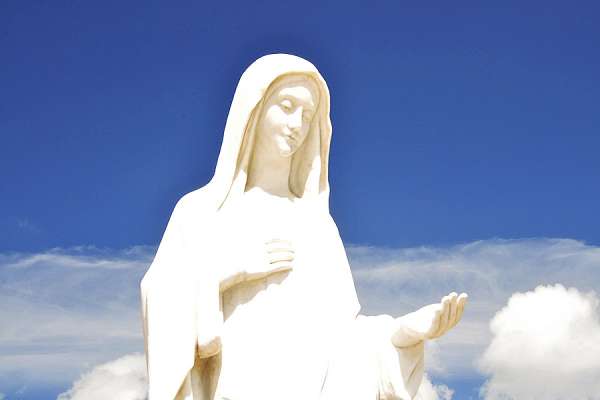Former spiritual director of the "Medjugorje seers" excommunicated

A secular priest who had been the spiritual director of six people who claimed to have seen visions of the Blessed Virgin Mary in the Bosnian city of Medjugorje was excommunicated.
Tomislav Vlasic, who had been a Franciscan priest until laicization in 2009, was excommunicated on July 15 with a decree from the Congregation for the Doctrine of the Faith in the Vatican. The excommunication was announced this week by the diocese of Brescia, Italy, where the lay priest lives.
The diocese of Brescia said that since his laicization, Vlasic “has continued to carry out apostolic activity with individuals and groups, through conferences and online; he continued to present himself as a religious and priest of the Catholic Church, simulating the celebration of the sacraments “.
The diocese said that Vlasic was the source of "grave scandal for Catholics", disobeying the directives of the ecclesiastical authorities.
When he was laicized, Vlasic was forbidden from teaching or devoting himself to apostolic work, and especially from teaching about Medjugorje.
In 2009 he was accused of teaching false doctrines, manipulating consciences, disobeying ecclesiastical authority and having committed acts of sexual misconduct.
An excommunicated person is prohibited from receiving sacramentals until the penalty has been revoked.
The alleged Marian apparitions in Medjugorje have long been the subject of controversy in the Church, which have been investigated by the Church but not yet authenticated or refused.
The alleged apparitions began on June 24, 1981, when six children in Medjugorje, a city in present-day Bosnia and Herzegovina, began experiencing phenomena that they claimed to be apparitions of the Blessed Virgin Mary.
According to these six "seers", the apparitions contained a message of peace for the world, a call to conversion, prayer and fasting, as well as some secrets surrounding the events to be fulfilled in the future.
From their inception, the alleged apparitions have been a source of both controversy and conversion, with many flocking to the city for pilgrimage and prayer, and some claiming to have experienced miracles at the site, while many others claim the visions are not credible. .
In January 2014, a Vatican commission concluded an almost four-year investigation into the doctrinal and disciplinary aspects of the Medjugorje apparitions and presented a document to the Congregation for the Doctrine of the Faith.
After the congregation has analyzed the results of the commission, it will prepare a document on the alleged apparitions, which will be submitted to the pope, who will make a final decision.
Pope Francis approved the Catholic pilgrimages to Medjugorje in May 2019, but did not deliberate on the authenticity of the apparitions.
Those alleged apparitions "still require scrutiny by the Church," papal spokesman Alessandro Gisotti said in a statement on May 12, 2019.
The pope allowed pilgrimages "as a recognition of the" abundant fruits of grace "that have come from Medjugorje and to promote those" good fruits ". It is also part of Pope Francis' "particular pastoral attention" to the place, Gisotti said.
Pope Francis visited Bosnia and Herzegovina in June 2015 but refused to stop in Medjugorje during his trip. On his flight back to Rome, he indicated that the investigation process into the apparitions was almost complete.
On the return flight from a visit to the Marian shrine of Fatima in May 2017, the pope spoke about the final document of the Medjugorje commission, sometimes referred to as the "Ruini report", after the commission's head, Cardinal Camillo Ruini , calling it "very, very good" and noting a distinction between the first Marian apparitions in Medjugorje and later ones.
"On the first apparitions, which were of children, the report more or less says that these must continue to be studied," he said, but regarding "the alleged current apparitions, the report has its doubts," the pope said.